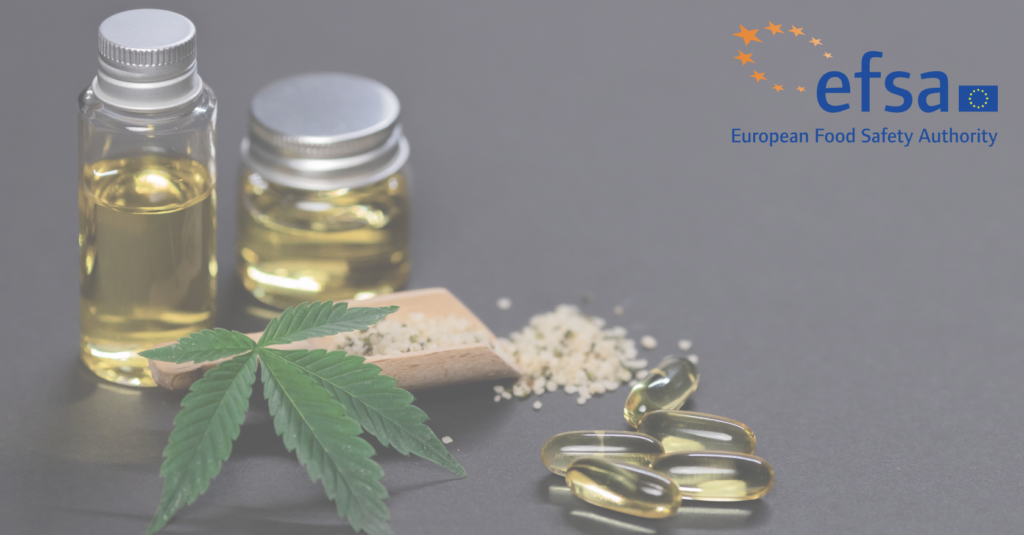EFSA has just published its safety review on CBD.
They conclude that the safety of cannabidiol (CBD) as a Novel Food is not established based on the lack of safety data and uncertainties about potential hazards related to CBD intake. Cannabidiol novel food evaluations are on hold pending new safety data on the liver, gastrointestinal tract, endocrine system, nervous system and on people’s psychological well-being.
 RNI drafted the main conclusion of this report on CBD:
RNI drafted the main conclusion of this report on CBD:
- Insufficient toxicity data: no toxicological threshold and NOAEL (No Observed Adverse Effect Level) have been established by the lack of toxicological data especially on CBD alone and by the lack of characterization of the extracts containing several cannabinoids. Moreover, some liver toxicity, endocrine alterations and reprotoxic effects in animal studies need to be clarified and/or confirmed as well as for the extrapolation to human data.
- Discrepancy in clinical trial requirements: the main clinical data available on CBD are carried out on the drug Epidyolex® to assess therapeutical effect and pharmacological action. The benefit/risk balance has been considered as positive for Epidyolex® for a specific category of patients in a drug status. However, in case of novel foods, their autorisation is based on their safety of use. For a use of CBD in foods and food supplements, it’s the safety of the ingredient that needs to be established.
- Population definition: in food supplements, a specific category of population and a precise daily dose are defined. However, in general foods other than food supplements, EFSA considers that the general population may be exposed and that labelling measures alone are not sufficient to address this risk.
- Side effects: some side effects have been reported on cognitive (lethargy, somnolence, sedation) and digestive functions (diarrhea mainly). Liver toxicity at low dose has been suspected in several studies.
- The food matrix affects the absorption and distribution of CBD. Dietary lipids enhance up to 5 times to the bioavailability of CBD. The ADME (Absorption, Distribution, Metabolism, Excretion) data needs to be clarified due to uncertainties and discrepancies between studies.
- The safety of other cannabinoids contained in hemp extracts has not been established.
Conclusion:
Due to the lack of safety data available on CBD for a food use, EFSA considers that the safety of CBD as a Novel Food is not established. EFSA’s experts received 19 applications for CBD as a novel food, with more in the pipeline. Following this publication, applicants must fill gaps on these health effects before EFSA’s evaluations on those application can go ahead.
The cannabidiol novel food applications are currently on hold (stop the clock process) pending this additional information.
EFSA is holding an info-session on June 28th on “The safety of cannabidiol as a novel food: data gaps and uncertainties”.
Link : Statement on safety of cannabidiol as a novel food: data gaps and uncertainties (wiley.com)



